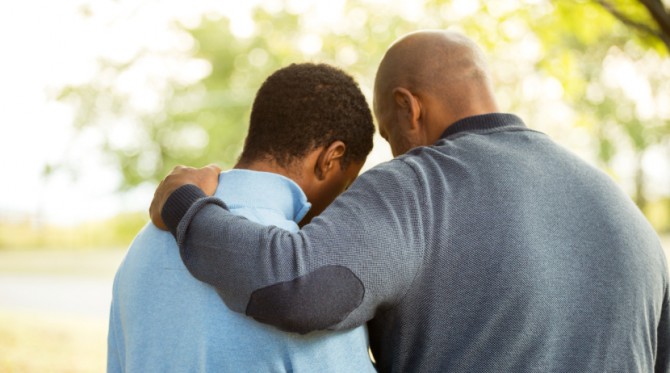The suicide of someone you care about is a devastating tragedy. It happens in the best of families and to the best of people, shattering the lives of the shocked survivors.
In many ways, suicide is one of the most difficult deaths to mourn. As you mourn the death of your friend or loved one, you probably feel a sense of betrayal. You have invested years of caring, loyalty, and patience with the deceased. Suddenly you are abandoned and rejected.
Recovery from the suicide of someone close is a monumental task, for the process of mending a broken heart is painful and slow. The road to recovery requires you to accept your feelings, to draw from your inner resources, and to develop positive attitudes toward the past, present, and future. The journey of healing starts with small steps leading from darkness to hope, from death to a renewed commitment to life.
Learn to live with unanswered questions. Struggling through the not knowing is extremely difficult. Your whys may never be answered, the puzzle never resolved. People who commit suicide often take with them the mystery of their life and death. You must gradually let go of the whys, accept what has happened, and go on living.
Allow time for bad memories. In the early stages of grief, survivors often experience playback of the suicide scene in their thoughts or in nightmares. As the hurt gradually becomes less intense, positive feelings will surface and become more frequent and longer lasting.
Acknowledge your feelings of anger. Your anger can help you survive and reenter life or it can become destructive: It depends on how you channel it. Ultimately, anger needs to be healed through a willingness to forgive.
Turn guilt into forgiveness. Guilt accompanies many of our experiences of powerlessness and imperfection. It can paralyze and demoralize us, or we can transform it into self-forgiveness and a greater capacity for loving those that are still around us.
Accept the loneliness. Loneliness can help you realize the depths of your love. From it, you can learn to become more sensitive to others’ losses and to turn to God, who is always there.
Draw from your own spiritual resources. Faith will help you live with your loss and grieve it well. And it will help you discover redeeming values in the midst of your suffering. Trust that God will sustain you through the stages of your bereavement.
Rebuild your self-esteem. The suicide of a friend or a loved one is a terrible blow to one’s self-image. After the shattering experience of a suicide, you need to pick up the pieces, reaffirm your commitment to life, and rebuild confidence in yourself.
Be patient with yourself. Remember that time, by itself, does not heal. It is how you use the time that’s important.
Reach out to others. When pain is used to reach out to others, it becomes creative and transforming love.
Suicide leaves deep scars on the survivors. But there is no turning back: You cannot change what has happened. You can, however, change your outlook—from backward to forward, from death to life.
Excerpt from “Bearing the Special Grief of Suicide” by CareNotes.






